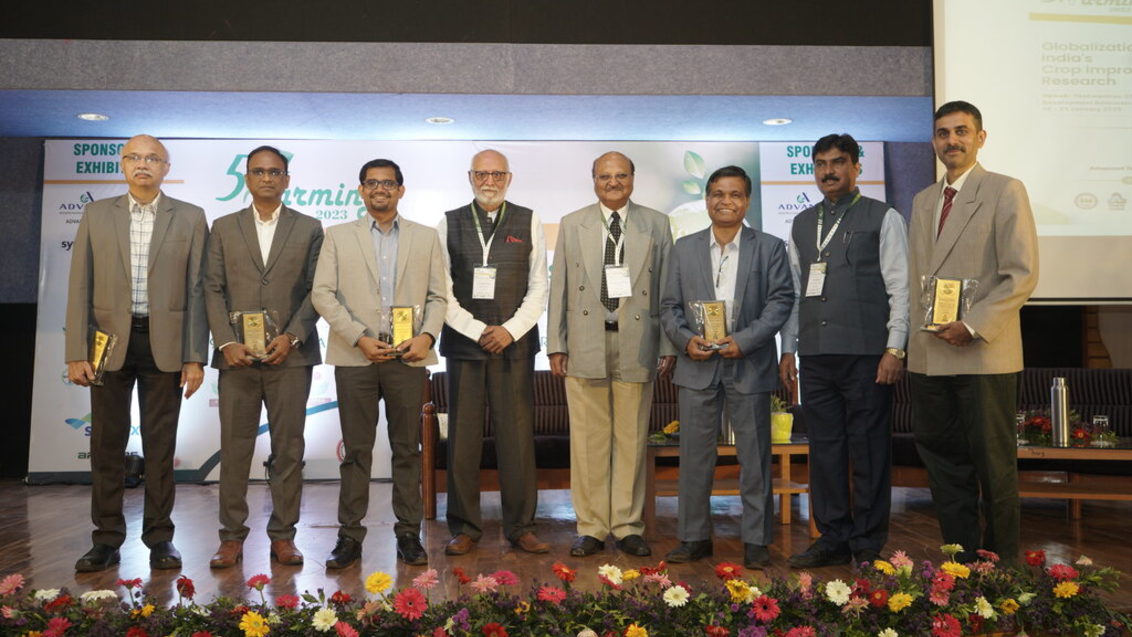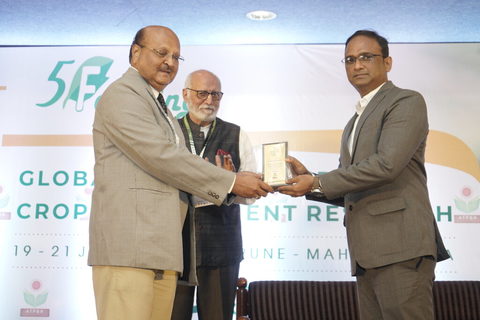Pune puts “PPP(P)” on the podium

Smallholders need faster access to better varieties. Public-private partnerships can play a key role in making the necessary seeds available. Our Foundation recently presented a maize example to Indian experts.
Leading figures in India's crop improvement research are keen to globalize the country’s contributions to more resilient plants and better harvests. Much of this push is intended to benefit smallholders. Advanced Training in Plant Breeding (ATPBR) recently organized a national conference on the topic in Pune. Syngenta Foundation India contributed with a presentation and facilitation support.
Among the many speakers was Raghavender Dantapuram, a Key Account Manager in our Indian Seeds2B team. He told a distinguished audience about a notable public-private partnership (PPP) catalyzed by our Foundation: the AAA Maize program. First, he explained the background.
“Our Seeds2B model pursues three main objectives”, Raghavender declared. Building on its extensive experience with PPPs, our Foundation encourages the private and public sectors to work closely together to the benefit of smallholders. “This involves bringing these farmers new value-adding varieties by sharing know-how and technologies”, Raghavender explained. As he emphasized, PPPs are an excellent way to take innovations for climate-smart, resilient agriculture beyond commercial farmers and make them accessible to low-income smallholders as well. “Thirdly and more generally”, Raghavender added, “PPP enables crop scientists to drive forward-looking solutions to some of agriculture’s most pressing challenges”.
Success in PPP stems from numerous factors. The PPP section of this website describes many of them in detail. At the Pune conference, Raghavender Dantapuram concentrated on four. Top of his list is a common understanding of the collaboration environment. “All the partners need to know their own and others’ roles and responsibilities”, he knows. “The working model has to be collaborative – and so does the funding.”
A related key success factor is what Raghavender calls “proper governance, with clear alignment on the collaborative space.” Mutual goodwill and appropriate conduct are fundamental, but PPP also needs “adequate performance management tools, notably for impact metrics”. Last but definitely not least, Raghavender notes, “the partners must pay close attention to communication and managing their interactions”.
Raghavender also added a fourth “P” to the list, noting the beneficial role of Philanthropy. Non-profit organizations are often excellently suited as catalysts of inter-sector collaboration. As a working paper by our Foundation underlines, corporate foundations can be at a particular advantage in this role. They have, as it were, “a foot in each camp”.
The AAA Maize program has clearly benefited from this approach. Built by our Foundation, the PPP aimed to make drought-tolerant maize hybrids accessible to Asian smallholders at an affordable price. As our recently updated Factsheet shows, recent progress has been rapid. In 2018, the program’s Indian seed partners sold 18 tons. Within two years, this had risen to 120 tons. Last year, they sold 210 tons. The number of smallholders using AAA maize has risen correspondingly, from some 900 in 2018 to 14,000 in 2022. The hybrid now also sells in Myanmar.
Joining Raghavender Dantapuram at the conference was Partha DasGupta, our national Advisor Emeritus. He moderated a discussion on the crucial topic of seed legislation. Partha additionally provided the citation for the Excellence in Seed Industry Award, won by VNR Seeds

